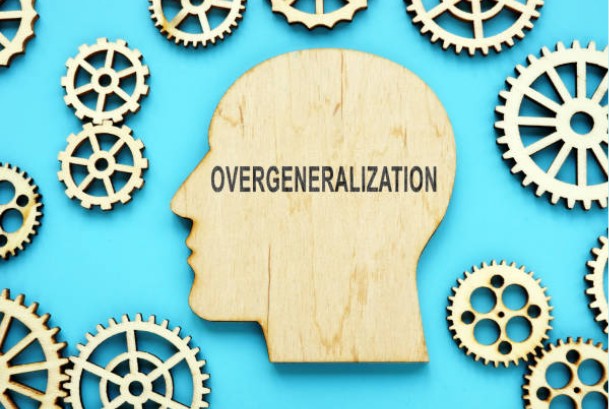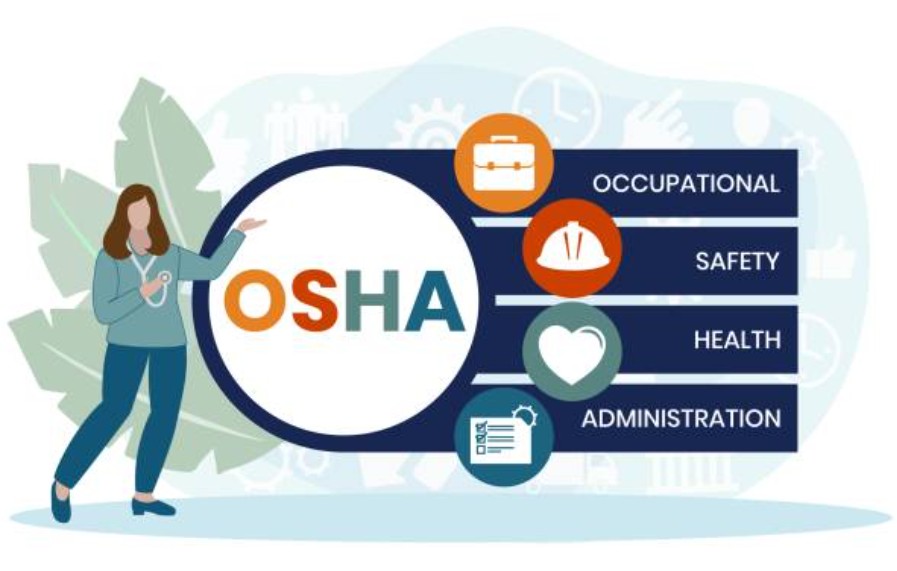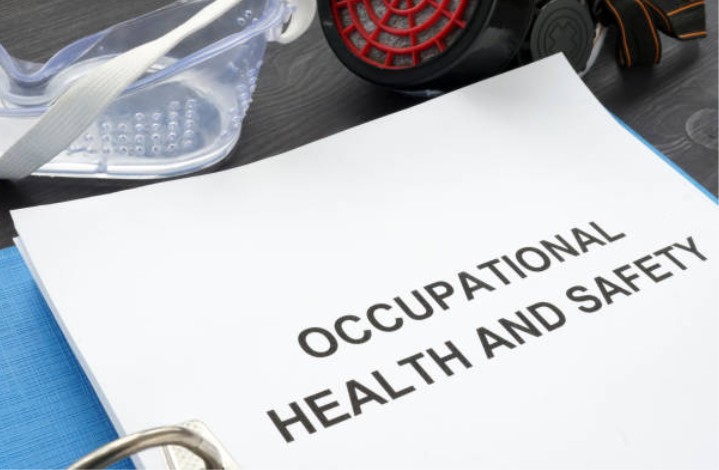Occupational health discussions can be both sensitive and crucial. For UK employees and employers alike, understanding the boundaries of effective communication with occupational health professionals is essential. This comprehensive blog post dives deep into why caution is necessary, what statements to avoid, and how to foster a productive dialogue. We’ll explore the complete landscape of occupational health in the UK, share practical advice, and provide useful tools for clear, respectful communication.
Why Is Effective Communication in Occupational Health So Important?
Clear, respectful communication with occupational health services ensures that both employee well-being and workplace efficiency are maintained. Missteps in conversation can lead to misunderstandings, strained relationships, and even legal complications. Knowing What Not to say to Occupational Health UK is a key part of ensuring that your interactions are productive.
Key Considerations:
- Sensitivity: Use empathetic language.
- Clarity: Communicate your situation with precise, factual details.
- Professionalism: Avoid casual language or ambiguous jargon.
- Preparedness: Think ahead about the key points you need to address.
What Are the Common Communication Pitfalls?

When engaging with occupational health professionals, several common pitfalls can derail the conversation. Avoiding these can help maintain a constructive dialogue:
- Overgeneralisation: Broad statements without evidence can be misinterpreted.
- Exaggeration: Inflated descriptions of symptoms or issues may not be taken seriously.
- Defensiveness: Responding with hostility or emotional resistance disrupts productive discussion.
- Assumptions: Presuming the occupational health team’s intentions without evidence can lead to conflict.
Consider This:
- Maintain Objectivity: Stick to factual details.
- Be Honest: Provide truthful, complete information.
- Focus on Solutions: Emphasise improvements rather than vent frustrations.
What Not to Say to Occupational Health UK?
This is the critical section where we address the main query: What Not to Say to Occupational Health UK? Here, we outline specific statements and types of language to avoid, ensuring you communicate effectively while minimizing risks.
Avoid Accusatory and Judgmental Language
- Do Not Blame or Criticise: Refrain from saying things like, “You never listen to my concerns,” or “This system is designed to fail me.” Such statements can create an adversarial atmosphere and derail the conversation.
- Avoid Stereotyping: Do not generalise or assume negative intentions by stating, “You all just want to cover up the real issues.” This can lead to defensive responses and block opportunities for constructive dialogue.
Steer Clear of Vague and Ambiguous Statements
- Be Specific, Not General: Avoid vague comments such as “I feel really unwell” without providing details. Instead, offer specifics like, “I have been experiencing a consistent headache every afternoon for the past two weeks, which affects my concentration.”
- Avoid Ambiguity: Statements that are open to multiple interpretations can cause confusion. For example, saying, “Things are not right at work,” without explaining what “not right” means, leaves room for misunderstanding.
Don’t Overstate or Exaggerate Symptoms
- Maintain Accuracy: Overstating or exaggerating issues, like saying, “I’m on the brink of collapse every day,” can undermine your credibility. Stick to factual, measured accounts of your experience.
- Provide Measured Descriptions: Use quantifiable details where possible (e.g., “I have had three episodes of severe dizziness in the past week”) rather than hyperbolic language.
Refrain from Being Defensive or Confrontational
- Avoid Defensiveness: Phrases such as, “I know what you’re going to say, but…” or “I don’t need your advice,” tend to shut down open dialogue. Instead, frame your responses in a way that shows willingness to work collaboratively.
- Keep Emotions in Check: Even if you feel frustrated, steer clear of language that might be interpreted as aggressive or confrontational. This includes avoiding all caps, exclamation points, or overtly emotional statements.
What Does the Current UK Occupational Health Landscape Look Like?

Understanding the modern context of occupational health in the UK is crucial. Current trends show a shift towards digital consultations, a heightened focus on mental health, and new regulatory reforms.
Key Trends Include:
- Digital Transformation: Many consultations now occur online.
- Mental Health Emphasis: Greater attention is on stress, anxiety, and work-life balance.
- Regulatory Updates: New guidelines protect employee rights while ensuring workplace productivity.
- Collaborative Approaches: Employers and health professionals increasingly work together to create robust support systems.
What Are the Do’s and Don’ts of Occupational Health Communication?
The following table summarises best practices and common pitfalls in occupational health communication:
| Communication Aspect | Do | Don’t |
| Language | Use clear, professional, and factual language | Use slang, jargon, or overly informal language |
| Description of Symptoms | Provide precise, detailed, evidence-based information | Overgeneralise or exaggerate symptoms |
| Tone | Maintain a calm, respectful, and objective tone | Get defensive or use confrontational language |
| Feedback | Ask clarifying questions and share specific concerns | Assume negative intent or engage in accusatory discussions |
| Problem-Solving | Focus on solutions and actionable next steps | Dwell on past issues without offering constructive feedback |
Table Note: This table reflects current UK occupational health communication guidelines to ensure all interactions are productive and respectful.
How Can I Enhance My Communication Strategy Further?
What Preparations Should I Make for an Occupational Health Discussion?
- Document Your Concerns: Keep a detailed log of symptoms, incidents, and relevant communications.
- Gather Evidence: Support your account with medical reports, performance reviews, or other documentation.
- Rehearse Your Points: Practice your key messages to ensure clarity and brevity during the conversation.
How Should I Engage with Occupational Health Professionals?
- Set Clear Objectives: Identify what you hope to achieve, whether it’s adjustments, accommodations, or clarity on issues.
- Stay Open-Minded: Be receptive to suggestions and feedback.
- Ask Questions: Ensure you fully understand any advice given and the proposed next steps.
What Lessons Can Be Learned from Real-Life Scenarios?
How Did Overgeneralisation Affect Workplace Health?
Case Study 1:
An employee described workload stress using vague language, leading to ambiguous recommendations.
Lesson: Detailed, specific descriptions allowed for a tailored support plan that effectively addressed key stressors.
How Did a Constructive Tone Lead to Better Outcomes?
Case Study 2:
Another employee maintained a calm, respectful dialogue despite challenging circumstances.
Lesson: A professional tone fostered a collaborative approach and resulted in effective, mutually agreeable outcomes.
What Are the Next Steps for Improving My Communication with Occupational Health Services?

For those looking to further refine their communication strategies, consider these resources and actions:
- Review Workplace Policies: Familiarise yourself with your company’s occupational health guidelines.
- Schedule a Consultation: If you’re facing challenges, book a meeting with your occupational health service to discuss your concerns.
- Stay Informed: Keep up with the latest trends, regulatory changes, and best practices in occupational health.
- Attend Workshops: Look for workplace wellness workshops and training sessions that focus on effective communication and stress management.
Final Thoughts: How Do I Ensure a Productive Dialogue with Occupational Health?
Understanding What Not to say to Occupational Health UK is crucial for nurturing a professional and supportive relationship with healthcare providers. By avoiding overly casual language, personal accusations, and vague statements, you create a platform for a dialogue that is both supportive and solution-oriented. Effective communication not only addresses immediate issues but also paves the way for long-term improvements in workplace health and safety.
By employing these strategies and staying updated on current best practices, you ensure that your voice is heard in a respectful and impactful manner. For more personalized advice, consider consulting your workplace’s occupational health service or a professional advisor who can guide you through your specific situation.
What Are the Most Frequently Asked Questions About Occupational Health Communication?
What should I say when discussing my symptoms?
Stick to factual descriptions and concrete examples. Mention specific incidents, durations, and any observable changes in your work performance.
Is it acceptable to include personal issues during consultations?
While some personal context is sometimes necessary, focus on how these issues impact your work and health directly.
How can I ensure that my concerns are taken seriously?
Prepare by jotting down key points before your meeting, using clear language, and backing your account with documentation where available.
Why is it important to avoid vague descriptions?
Vague descriptions can lead to misunderstandings and ineffective interventions. Specificity helps address the core issues directly.
How do I maintain a professional tone in challenging conversations?
Prepare in advance, focus on your facts, use respectful language, and ensure that emotions do not override clear communication.






